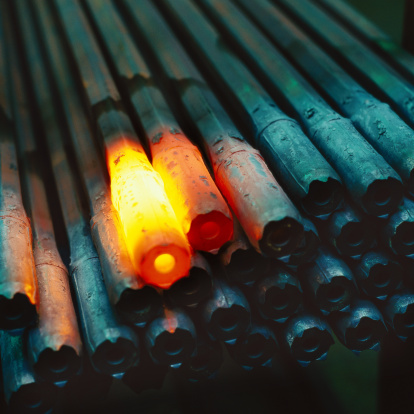
We’ve already gone over some of the issues with investing in gold, either in mining companies like Barrick Gold Corp. (NYSE: ABX) and Kinross Gold Corp. (NYSE: KGC) or in ETFs like the SPDR Gold Trust (NYSEMKT: GLD). Goldman thinks that petroleum and copper are the short-term winners. Petroleum due to the lack of spare capacity and increased demand from emerging markets, and copper because the pull back in pricing last year was driven by concerns about China that no longer apply.
To which we say, “Maybe.” Petroleum, at least in the form of crude oil, costs more on the spot market now than it does on the futures market. That backwardation could be a buying opportunity if the global economy is in fact accelerating and will continue to do so in the second half of this year. The suggestion is that a “buy and hold” strategy will pay off because crude oil supplies will come under pressure.
That’s what happened (to some extent) in 2008 when crude went to $147 a barrel. How well do the conditions from 2008 fit the conditions of the crude market in 2013? Perhaps not all that well.
As for copper, the Chinese government has recently said it will soak up some of the liquidity in the country’s banks in an effort to keep inflation under control. New rules related to real estate and housing could cool some of the exuberance in the construction sector in China, too. On one hand, we could be in for a repeat of 2008 when commodity prices went on an upward tear. On the other hand, commodity producers will continue to overproduce, keeping prices low.
Where does this leave the big banks like Goldman, J.P. Morgan Chase & Co. (NYSE: JPM) and Morgan Stanley (NYSE: MS), all of which reported double-digit declines in their commodities business last year? Lower market volatility plus restrictions imposed on trading by the Dodd-Frank Act have hit the banks’ trading operations hard. The banks could try to divest their commodity arms or spin them off into separate companies, but none has said much at all about its plans.
And that lead into gold bit? Last year Glencore International plc and Trafigura, two of the world’s largest commodities trading houses, kept large supplies of lead in storage and off the market in an effort to raise the price, which had fallen to a 52-week low of around $0.72 a pound. Today lead sells for about $1.00 a pound. Gold is up about 3% in the same period.
The Average American Is Losing Momentum on Their Savings Every Day (Sponsor)
If you’re like many Americans and keep your money ‘safe’ in a checking or savings account, think again. The average yield on a savings account is a paltry .4%* today. Checking accounts are even worse.
But there is good news. To win qualified customers, some accounts are paying nearly 10x the national average! That’s an incredible way to keep your money safe and earn more at the same time. Our top pick for high yield savings accounts includes other benefits as well. You can earn up to 3.80% with a Checking & Savings Account today Sign up and get up to $300 with direct deposit. No account fees. FDIC Insured.
Click here to see how much more you could be earning on your savings today. It takes just a few minutes to open an account to make your money work for you.
Thank you for reading! Have some feedback for us?
Contact the 24/7 Wall St. editorial team.




